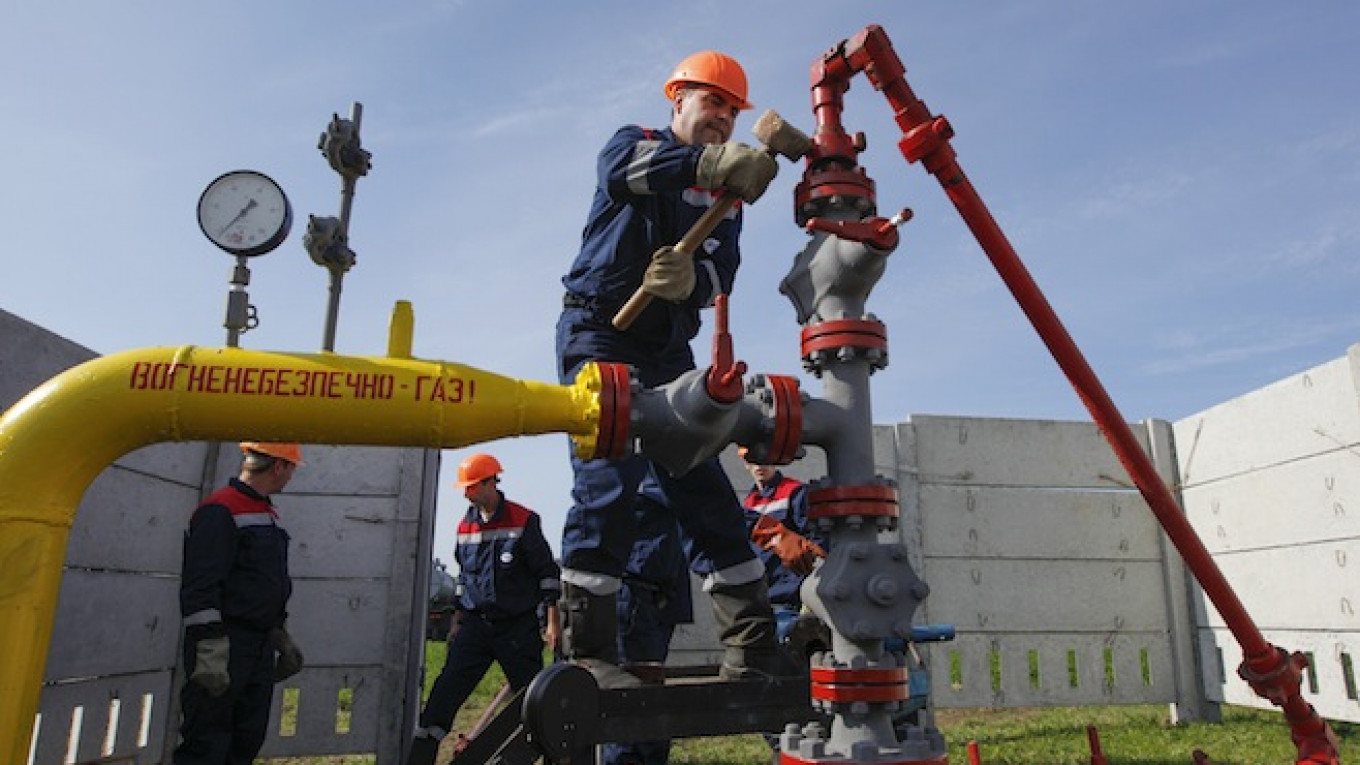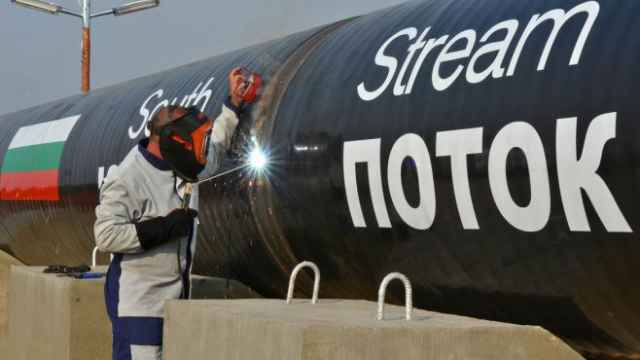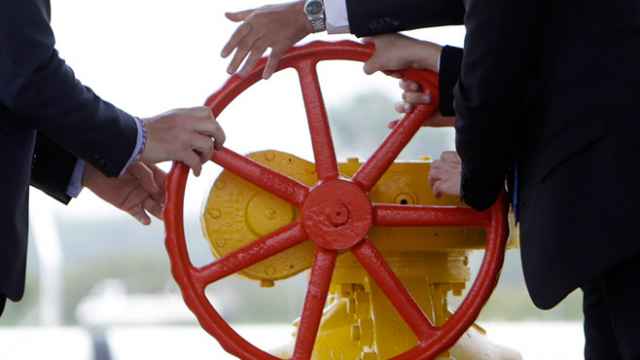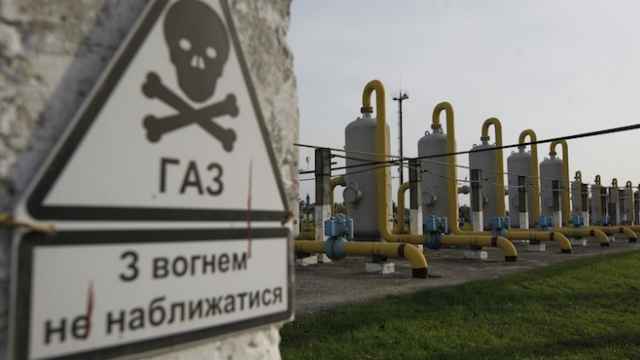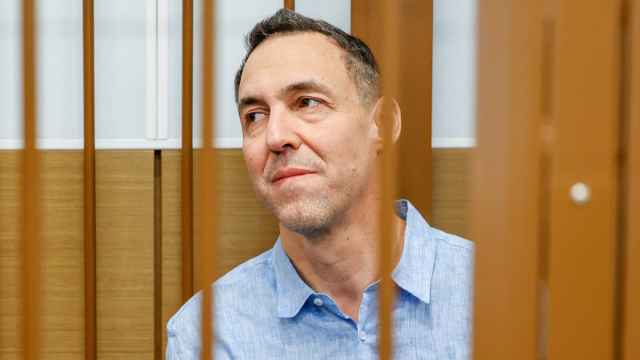Russian natural gas transit through Ukraine to Europe is still problematic and alternative supply routes, such as the planned South Stream pipeline, should be used to solve the issue, President Vladimir Putin said in an interview.
Moscow halted gas supplies to Ukraine in June over unpaid debts and pricing disagreement.
This has sparked concerns about the possible disruption of Russian gas supplies which transit Ukraine en route to Europe, something which has occurred twice in the past decade.
"As for the future of Russian gas exports to Europe, the problem of transit across the Ukrainian territory remains. One of the more obvious solutions might be to diversify the delivery routes," Putin told the Serbian daily Politika, ahead of a visit.
Putin is set to meet his Ukrainian counterpart Petro Poroshenko this week in an attempt to resolve a crisis over Ukraine, where an armed conflict between pro-Moscow rebels and government forces has claimed the lives of more than 3,000 people.
Natural gas supplies will also be discussed.
To avoid supplies disruption and bypass Ukraine, Russia has built the Nord Stream gas pipeline directly to Germany across the Baltic Sea. The planned South Stream pipeline would cross the Black Sea to southern Europe with plans to start supplies next year.
That project has irked the European Union, which is trying to reduce reliance on energy from Russia which meets a third of the EU's gas demand.
EU regulations have also limited Nord Stream's ability to pump gas at full capacity, something that would require full access to an inland OPAL pipeline from Germany to the Czech Republic.
EU authorities, citing tension in Ukraine, have asked for a delay until at least the end of October on whether to allow Russia greater access to that pipeline.
"We hope that the European Commission will finally make a decision in the nearest future about the use of the Opal gas pipeline at full capacity," Putin said.
He also said that South Stream would significantly contribute to the integrated energy security in Europe.
"It will benefit everybody, Russia as well as European consumers, including Serbia," he said.
A Message from The Moscow Times:
Dear readers,
We are facing unprecedented challenges. Russia's Prosecutor General's Office has designated The Moscow Times as an "undesirable" organization, criminalizing our work and putting our staff at risk of prosecution. This follows our earlier unjust labeling as a "foreign agent."
These actions are direct attempts to silence independent journalism in Russia. The authorities claim our work "discredits the decisions of the Russian leadership." We see things differently: we strive to provide accurate, unbiased reporting on Russia.
We, the journalists of The Moscow Times, refuse to be silenced. But to continue our work, we need your help.
Your support, no matter how small, makes a world of difference. If you can, please support us monthly starting from just $2. It's quick to set up, and every contribution makes a significant impact.
By supporting The Moscow Times, you're defending open, independent journalism in the face of repression. Thank you for standing with us.
Remind me later.


